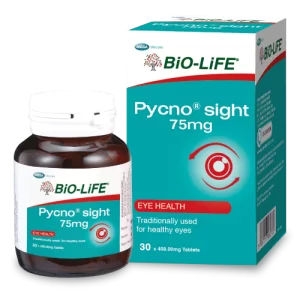
Diabetes and Vision Impairment
May 27, 2022
Introduction
Did you know that individuals with diabetes are at risk of developing diabetic retinopathy within 15-20 years of diagnosis1? Diabetic retinopathy is a serious sight-threatening complication of diabetes. Over time, having uncontrollably high sugar levels in the blood can damage the retina (the part of the eyes that detect light and send signals to the brain) as sugar will block the tiny blood vessels that nourish the retina, cutting off its blood supply. As a result, the eyes attempt to grow new abnormal blood vessels that could leak easily.
Diabetic Retinopathy is Preventable
In the early stages, diabetic retinopathy may not have noticeable symptoms. Hence, it might go undetected until it affects the vision, such as trouble reading or seeing faraway objects, flashes, spots, blurring, and distortion.

These changes may come and go. However, diabetic retinopathy can lead to vision impairment and even blindness if left untreated. The good news is, getting treatment as early as possible and managing diabetes can help prevent or delay irreversible vision problems.
Your Sight Matters
You can protect your vision by getting routine eye exams at least once a year to monitor the condition, especially when you have high blood sugar/diabetes. Besides that, good blood sugar control through a healthy diet and active lifestyle can help reduce the risk of diabetic retinopathy and all types of diabetes complications. Furthermore, you can include powerful antioxidants such as French Maritime Pine Bark Extract to promote healthy eyes. According to clinical studies, this extract contains Pycnogenol®, which can improve the retinal blood flow2, strengthen the blood capillaries in the retina3 and improve blood sugar level management4.

Know more about Pycno®sight 75mg
References:
- Williams, R., Airey, M., Baxter, H., Forrester, J., Kennedy-Martin, T., & Girach, A. (2004). Epidemiology of diabetic retinopathy and macular oedema: A systematic review. Eye, 18(10), 963-983.
- Steigerwalt R, Belcaro G, Cesarone MR, et al. 2009. Pycnogenol® improves microcirculation, retinal edema, and visual acuity in early diabetic retinopathy. Journal of Ocular Pharmacology and Therapeutics, 25(6), 537-540.
- Spadea L and Balestrazzi E. 2001. Treament of vascular retinopathies with pycnogenol. Phytotherapy Research, 15(3): 219-223
- Zibadi, S., Rohdewald, P. J., Park, D., & Watson, R. R. (2008). Reduction of cardiovascular risk factors in subjects with type 2 diabetes by Pycnogenol supplementation. Nutrition Research, 28(5), 315-320.




